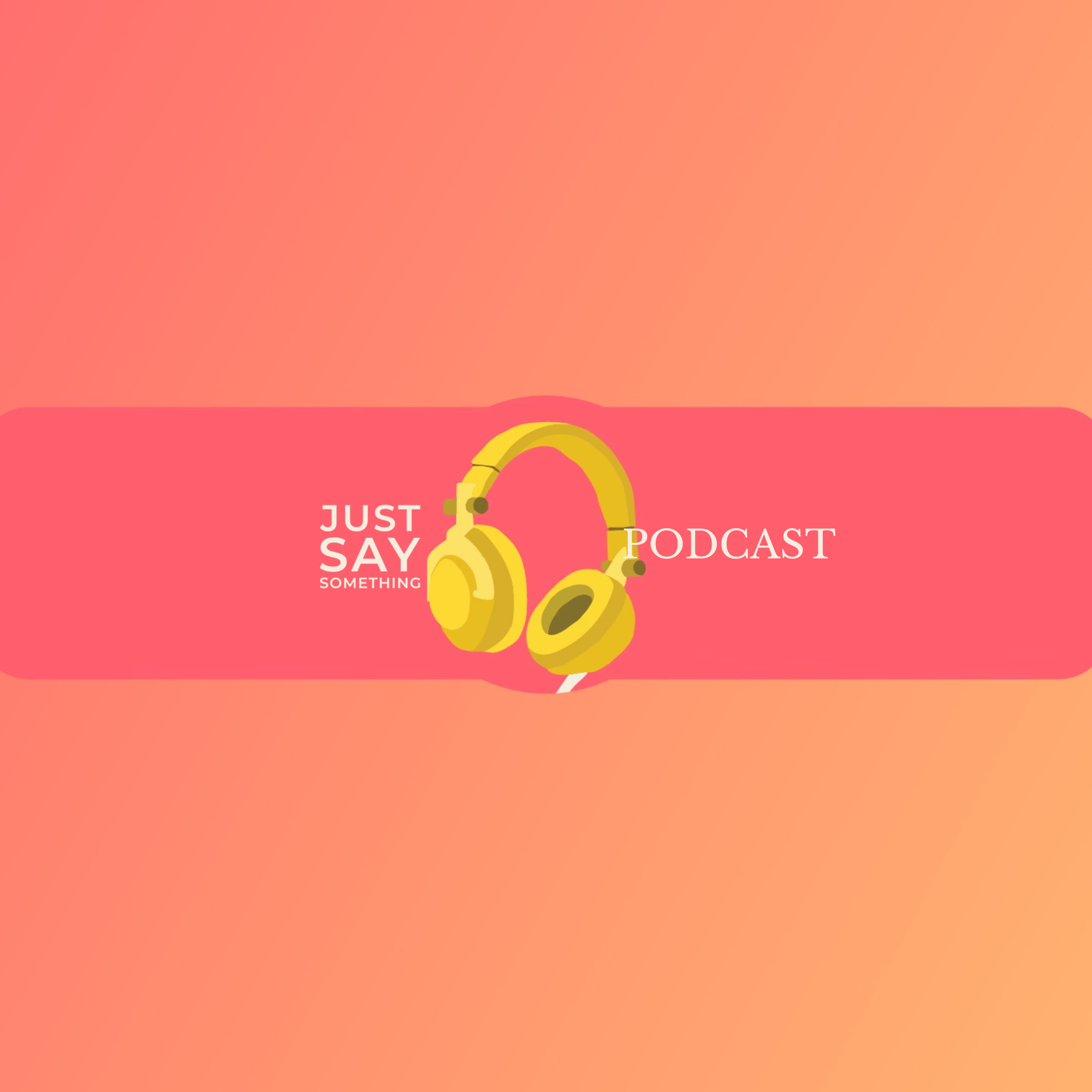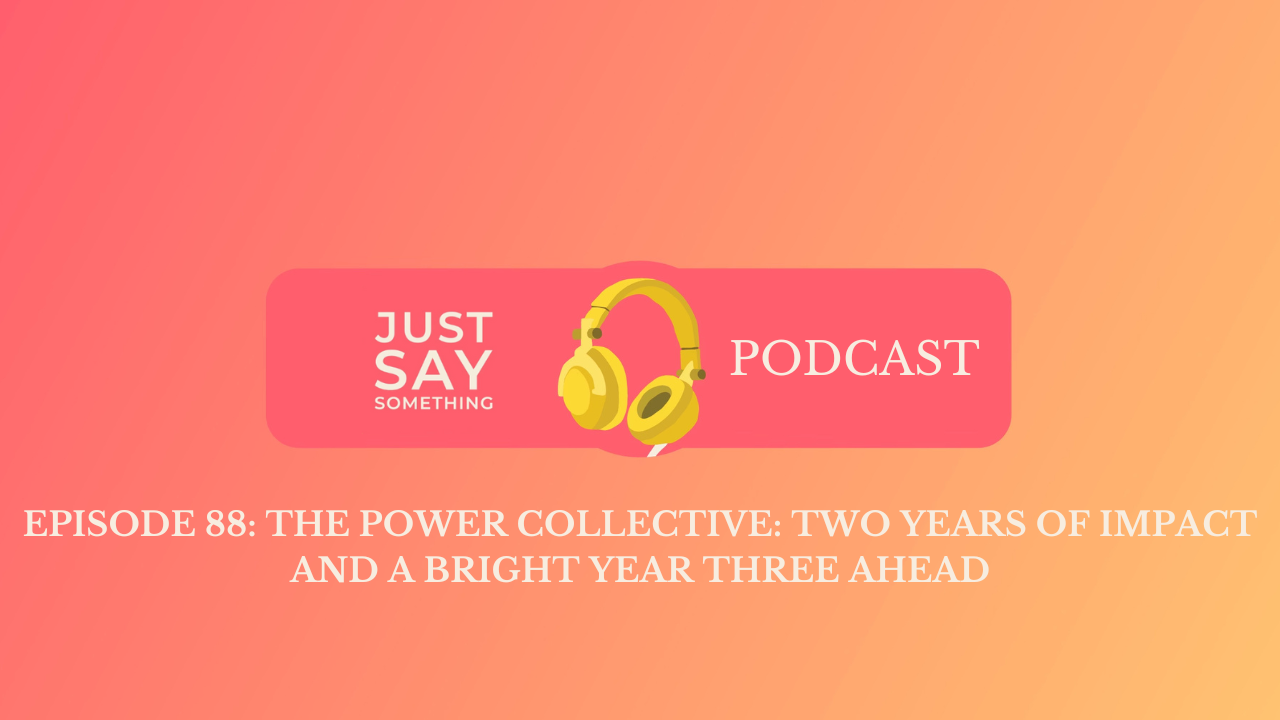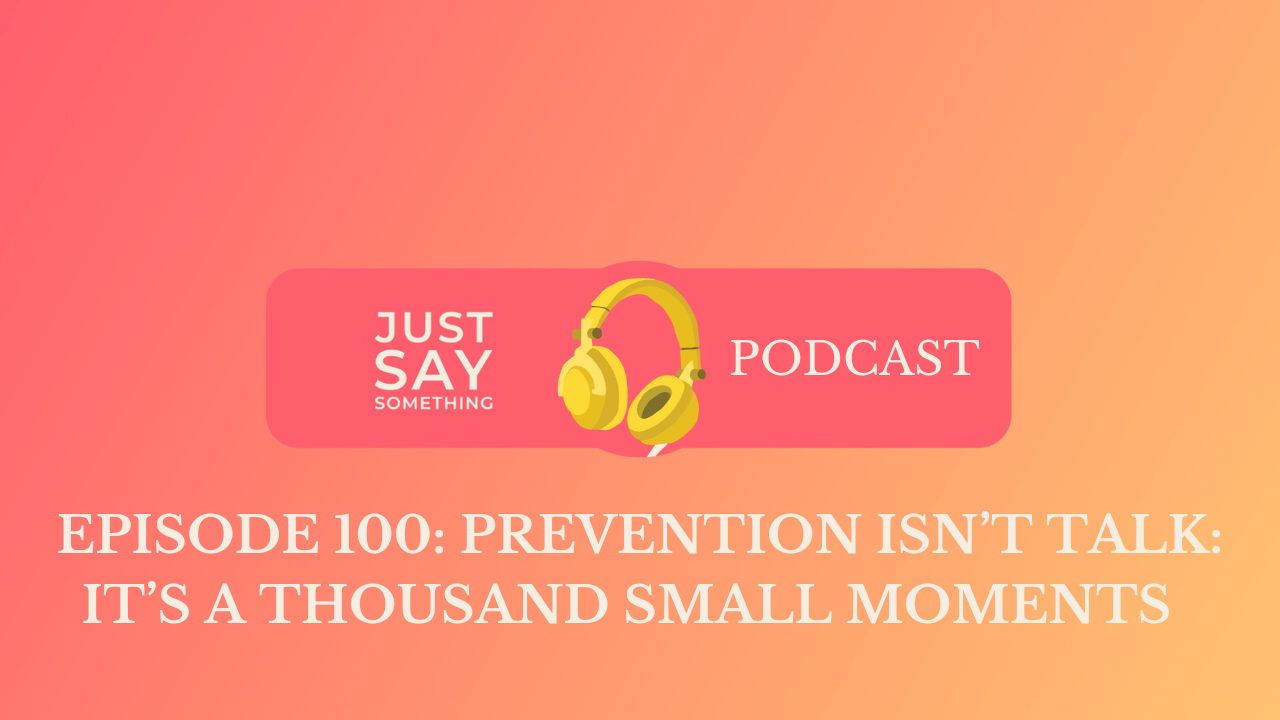[00:00:00] Foreign.
[00:00:07] Hello everyone, and welcome back to Just say Something podcast. I'm your host, Philip Clark, and today I want to talk to you about something that affects every single one of us. I know it does me. Stress. Ah, so April is Stress Awareness Month. And it couldn't come at a better time. In our fast paced world where we're constantly connected. You know those little cell phone things or iPad things, constantly on the go and constantly juggling responsibilities, stress has become an unwelcome companion for many of us.
[00:00:52] For the next few minutes, I want to explore what Stress Awareness Month is all about, why being conscious of our stress matters. But most importantly, I want to share some practical strategies that may help you better manage stress in your life.
[00:01:15] And don't worry, I'll also share some valuable resources at the end for anyone who needs additional support.
[00:01:26] So what is Stress Awareness Month?
[00:01:30] So Stress Awareness Month has been recognized every April since 1992. Oh, that's the year I started here.
[00:01:39] That's when my stress began.
[00:01:43] We've been talking about stress a lot over 30 years now.
[00:01:47] The Recognition Month was established by the Health Resource Network, a nonprofit health education organization with a simple but powerful goal to increase public awareness about both the causes and cures for our modern stress epidemic.
[00:02:10] So all month, healthcare professionals and health promotion experts across the country join forces to increase awareness about stress and its impact on our health and well being.
[00:02:24] They use this month to highlight the ways that stress affects us physically, mentally and emotionally.
[00:02:34] And the statistics are eye opening. According to the American psychological association, about 77% of people regularly experience physical symptoms caused by stress, and 73% experience psychological symptoms. Those numbers are likely increased since the pandemic, which brought new forms of stress into all of our lives.
[00:03:06] But Stress Awareness Month isn't just about acknowledging how prevalent stress is. It's about taking action. It's about recognizing the signs of stress in ourselves and in others, understanding its impact, and finding healthier ways to respond to the stressors in our lives.
[00:03:30] So why is it so important that we talk about stress? The answer is simple but profound.
[00:03:38] Because unmanaged stress can literally make us sick.
[00:03:46] When we experience stress, our body releases cortisol, often called the stress hormone, in short burst. This isn't harmful. In fact, it can be helpful, giving us the extra boost that we need to meet the deadline or to handle an emergency. But when stress becomes chronic, when we're constantly operating in that high alert state, it starts to take its toll.
[00:04:17] Chronic stress has been linked to heart disease, a weakened immune system, digestive problems, sleep Issues, weight gain, memory and concentration impairment, and mental health conditions like anxiety and depression.
[00:04:37] And that's just scratching the surface.
[00:04:40] Think about this.
[00:04:42] Many of us have normalized our stress.
[00:04:46] We wear our busyness and our ability to handle high pressure situations like a badge of honor. I'm so stressed has become a common phrase that we barely register anymore with that.
[00:05:04] That's precisely why Stress Awareness Month is so valuable. It gives us permission to pause and to check in with ourselves to ask, how am I really doing?
[00:05:18] How is stress showing up in my body, my mind and or my relationships?
[00:05:28] Am I managing it in a healthy way or am I just pushing through?
[00:05:33] And most importantly, it reminds us that acknowledging stress isn't a sign of weakness. It's an essential part of taking care of ourselves.
[00:05:47] Before we can manage stress effectively, we need to recognize when it's happening. Stress shows up differently for everyone. But there are some common signals to watch for.
[00:06:01] Physical signs might include headaches, muscle tension or pain, chest pain, fatigue, stomach upset or sleep problems.
[00:06:14] Some of you may notice your shoulders creeping up towards your ears when you're stressed or develop a tension headache that hits close to home.
[00:06:25] Mental and emotional signs could include anxiety, restlessness, lack of motivation or focus, feeling overwhelmed, irritable or angry or anger and sadness or depression. You might notice yourself snapping at loved ones, feeling unable to concentrate, or experiencing racing thoughts that keep you up at night.
[00:06:55] Behavior signs might include changes in appetite, either eating too much or eating too little, procrastinating or avoiding responsibilities, increase use of alcohol, tobacco or other substances, or withdrawing from the people around you.
[00:07:15] These signals are your body's way of waving a red flag, telling you that something needs to change. The earlier you can recognize these warning signs, the sooner you will take steps to address them.
[00:07:31] I really want you to check in with yourself. Are you experiencing any of these signs of stress? If so, that's valuable information. I'm not judging. It's just awareness. Because awareness is the first step toward positive change, let's talk about some practical ways to manage stress better.
[00:07:55] I want to emphasize that stress management isn't a one size fits all. What works for me may not work for you, and that's perfectly okay. The key is to work through options and find what helps you the best.
[00:08:11] First, there's the physical approach. Regular exercise is one of the most effective stress relievers. It pumps up your endorphins, improves your mood, and can serve as a valuable meditation in motion. Even a 20 minute walk can make a difference.
[00:08:30] Getting enough sleep is crucial when we're tired. Stressors seem magnified. Try establishing a bedtime routine and keeping a constant sleep schedule.
[00:08:45] Then there's the mind body connection. Mindfulness and meditation practices have been shown to reduce stress significantly.
[00:08:56] Even just taking five deep breaths when you're feeling stressed can activate your parasympathetic nervous system, your body's natural relaxation response.
[00:09:09] Setting boundaries is another powerful strategy. It's okay to say no to additional responsibilities when you're feeling overwhelmed, and try to limit exposure to news and social media if you find they trigger your stress.
[00:09:26] Connection is also vital.
[00:09:29] Talking about your stress with trusted friends, family members or mental health professionals can provide relief and perspective.
[00:09:38] Sometimes just voicing our worries out loud can make them seem more manageable.
[00:09:45] And finally, don't underestimate the power of enjoyable activities. Make time for hobbies, laughter and fun. These aren't luxuries, they're essentials for stress management.
[00:10:00] Remember, stress management isn't about eliminating stress completely. That's not realistic. It's about building resilience so that you can respond to stress in healthier ways.
[00:10:14] Before we wrap up, I want to share some valuable resources for everyone who needs additional support with stress management.
[00:10:25] The National Institute of Mental Health offers information about stress and stress management on their
[email protected] the Substance Abuse and Mental Health Service Administration operates a national helpline at 1-800-662-HELP.
[00:10:51] It's free, confidential and available 24, 7, 365.
[00:10:57] The Crisis Line or the Crisis Text Line provides free 24. 7 support via text messages. So text home to 741741 to connect with a trained crisis counselor and the American Psychological association website APA.org offers a psychologist locator service to help you find mental health professionals in your area.
[00:11:31] Many workplaces offer EAP programs Employee Assistant programs. That's free confidential counselors counseling sessions. So check with your HR department to see if this is available to you.
[00:11:48] Locally. We have 988 can help. Don't hesitate to call them. That is our Crisis Line that is run by Mental Health America Greenville County. If you dial 988, chances are your phone call will be answered by someone here in Greenville that can connect you to local resources.
[00:12:09] Then there's NAMI Greenville who is also a great resource if you're in the Greenville area. They are a nonprofit grassroots organization offering education, support and advocacy for those with mental health challenges and their friends and family.
[00:12:28] Remember, reaching out for help isn't a sign of weakness. It's a sign of strength and self awareness.
[00:12:36] So as we recognize Stress Awareness Month. I encourage you to make your mental health a priority. Start small. Maybe try one new stress management technique this week. Pay attention to how stress shows up in your body and your life, and most importantly, be kind to yourself in the process.
[00:12:59] Stress might be inevitable, but suffering in silence isn't.
[00:13:05] Just say something to yourself, to someone you trust, to a professional if needed. Your well being is worth it.
[00:13:17] If you like this episode, please share, subscribe, follow, like and comment. We are on YouTube and wherever you listen to your podcast. Thank you again for listening to Just say Something and until next time, take care of yourself and each other.


